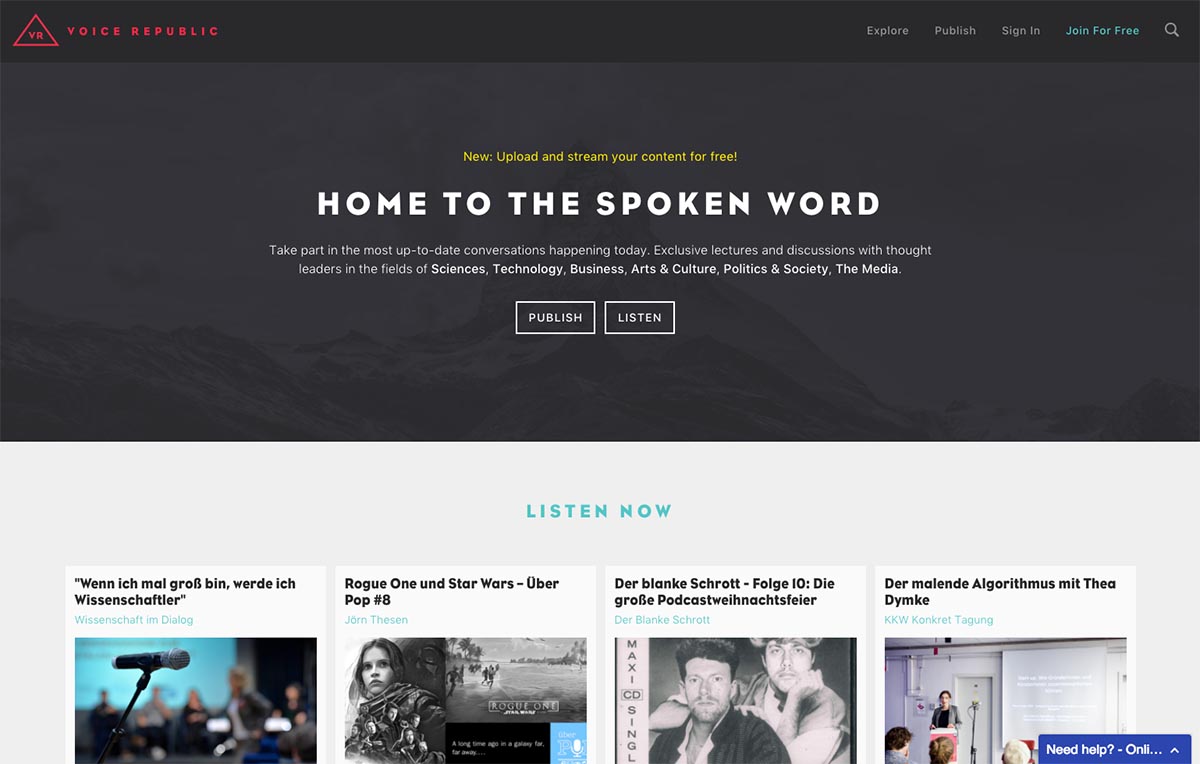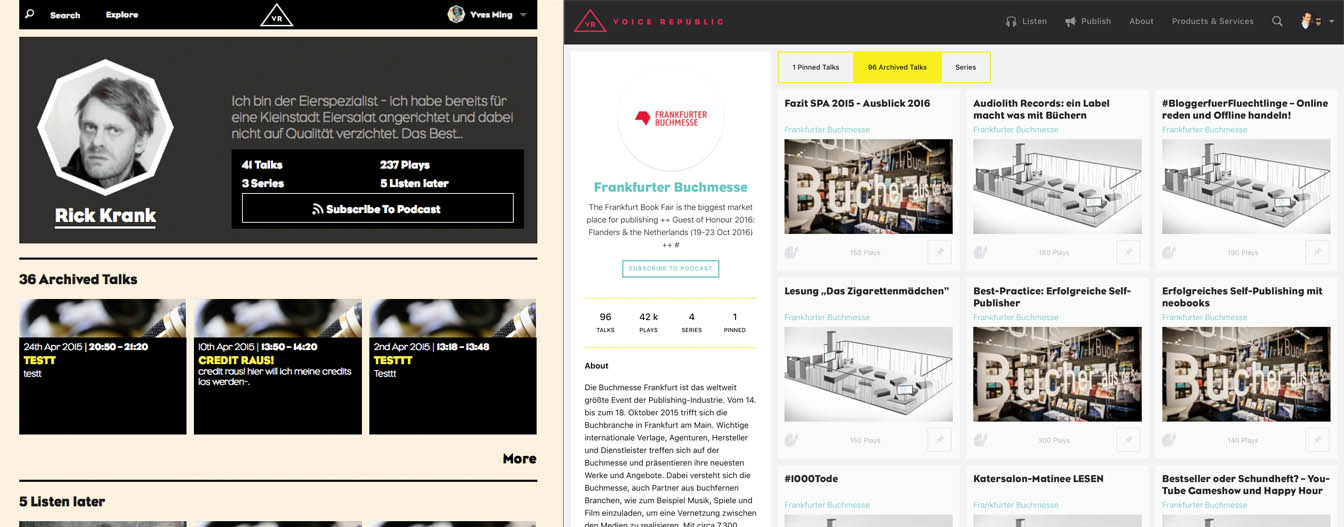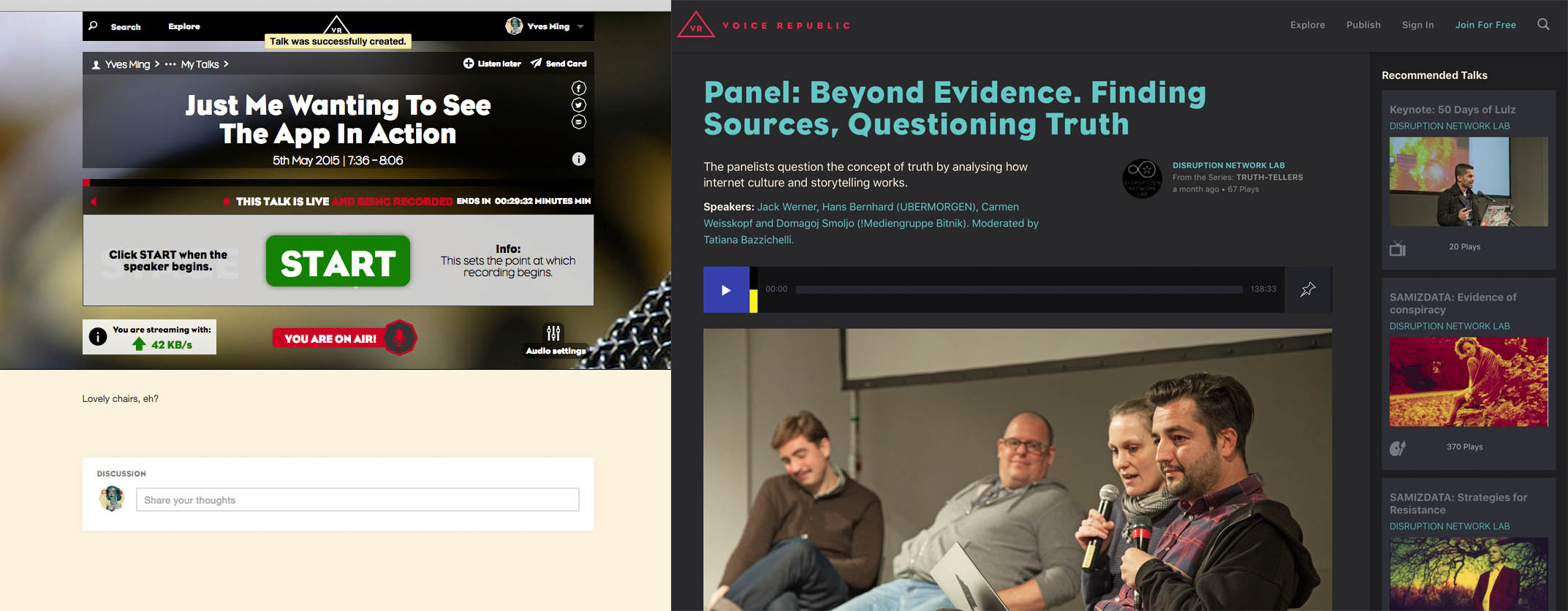Voice Republic is a platform for high-quality spoken content, with headquarters in Zürich and Berlin. It offers conferences, lecture series, book fairs and individual pod casters an easy way to live-stream their content. Notable appearances include Edward Snowden, Slawoj Zizek and Angela Merkel.
Before I joined Voice Republic in the Spring of 2015 as Head of Product Design, the UX had been patched together by a series of freelance designers. It lacked cohesion and features were competing with each other for attention.
At the same time, the team was pivoting the away from a collaborative stage model—where listeners could request the microphone—to more of a traditional live broadcast model. They asked me to join the in-house team in order to give the design a refresh and ensure that all the new features would cohere to the new design.
As Head of Product Design at Voice Republic, my role includes the following:
- Strategy: I consult the key stakeholders on design and UX enhancements. I work closely with the developers to ensure that design suggestions are realistic to build within the given resources.
- Workshop: Occasionally I lead design workshops to gather requirements and brainstorm solutions.
- UX: I create wireframes and mockups for new features and apps.
- Design & Prototyping: I deliver browser-based prototypes of each new feature for validation, testing and documentation.
- Front-End: I implement the designs using HAML, JQuery, Rails, SCSS and Clojurescript.
The Voice Republic site is constantly changing. And with such a small team, it’s hard to accomplish even a portion of the things on our roadmap. But I’m happy with lots of the improvements we’ve made to the UX and design.
Here are some screenshots showing before/after comparisons of a couple of the pages on the site:
The Profile Page, before (left) and after (right) the redesign.
The Talk Page, before (left) and after (right) the redesign.
Case Study: The “Publish” User Journey
This is how people publish…
1
The Voice Republic platform is divided between two main user groups: Listeners, and Publishers. So we
Then we…
In addition..
After lots of sketching, experimentation and prototyping, we













